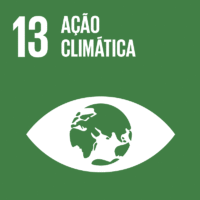Ciência_Iscte
Comunicações
Descrição Detalhada da Comunicação
Geographies of transition in food systems: the role of Metropolitan Areas in the Portuguese case
Título Evento
The 8th Nordic Geographers Meeting
Ano (publicação definitiva)
2019
Língua
Inglês
País
Noruega
Mais Informação
Web of Science®
Esta publicação não está indexada na Web of Science®
Scopus
Esta publicação não está indexada na Scopus
Google Scholar
Esta publicação não está indexada no Overton
Abstract/Resumo
The transition of food systems towards a sustainable model has been under analysis and debate (Sutherland, Wilson and Zagata 2014). This transition is related with structural changes, namely the emphasis on local production, short supply chains, and the preference for bio products. So far the research has mostly highlighted the role of agriculture through niche innovations (e.g. Wuskerke and van der Ploeg, 2004; Knickel et al., 2009) and organic farms (Belz, 2004; Smith, 2007), transitions within individual farms (Wilson, 2008), and national cases (Poppe et al., 2009). In the case of food systems transition, the centrality of territorial units and scales has been claimed as fundamental (Spaargaren et al, 2012). This consideration will contribute to emphasize the relevance of territorial dimensions in the transitions literature.
Bearing this in mind, the paper addresses the role of Metropolitan Areas in the food systems transition through the consideration of the case of Lisbon Metropolitan Area (LMA). Recent research projects (e.g., Periurban) have studied the LMA, allowing the identification of crucial resources for the transition process, such as a strong presence of agricultural land (around 45% of LMA land area).
The strategic role of this specific territory is addressed through the following analytical dimensions: i) characterization of Lisbon Metropolitan Area in socioeconomic and governance terms, namely land use patterns, and territory planning and management institutional framework; ii) presentation of innovative case studies located in LMA within the theoretical framework of transition studies.
Agradecimentos/Acknowledgements
Project SPLACH – Spatial planning for change
Palavras-chave
Food System,Transitions,Territory,Lisbon Metropolitan Area
Classificação Fields of Science and Technology
- Economia e Gestão - Ciências Sociais
- Geografia Económica e Social - Ciências Sociais
Registos de financiamentos
| Referência de financiamento | Entidade Financiadora |
|---|---|
| POCI-01-0145-FEDER-016431 | European Regional Development Fund (FEDER), through COMPETE2020 - Competitiveness and Internationalization Operational Program (POCI) and by National funds through the Foundation for Science and Technology FCT |
Contribuições para os Objetivos do Desenvolvimento Sustentável das Nações Unidas
Com o objetivo de aumentar a investigação direcionada para o cumprimento dos Objetivos do Desenvolvimento Sustentável para 2030 das Nações Unidas, é disponibilizada no Ciência_Iscte a possibilidade de associação, quando aplicável, dos artigos científicos aos Objetivos do Desenvolvimento Sustentável. Estes são os Objetivos do Desenvolvimento Sustentável identificados pelo(s) autor(es) para esta publicação. Para uma informação detalhada dos Objetivos do Desenvolvimento Sustentável, clique aqui.

 English
English



